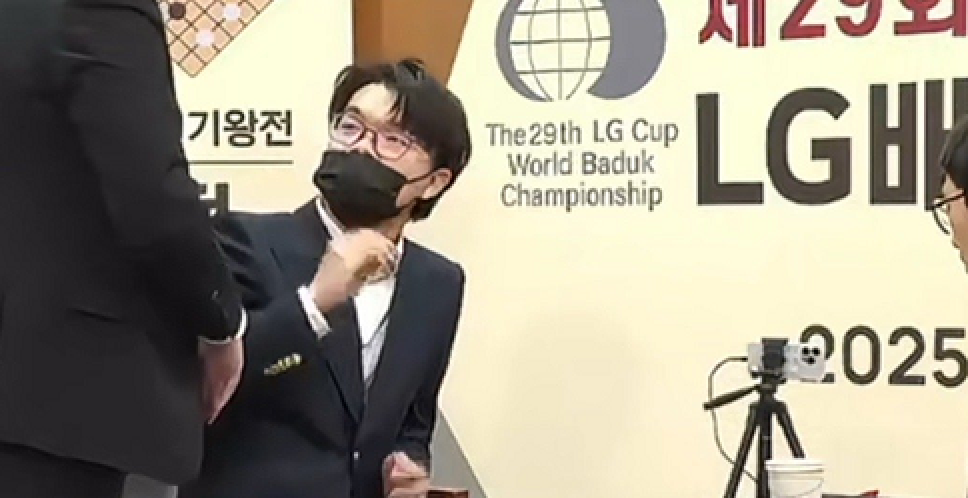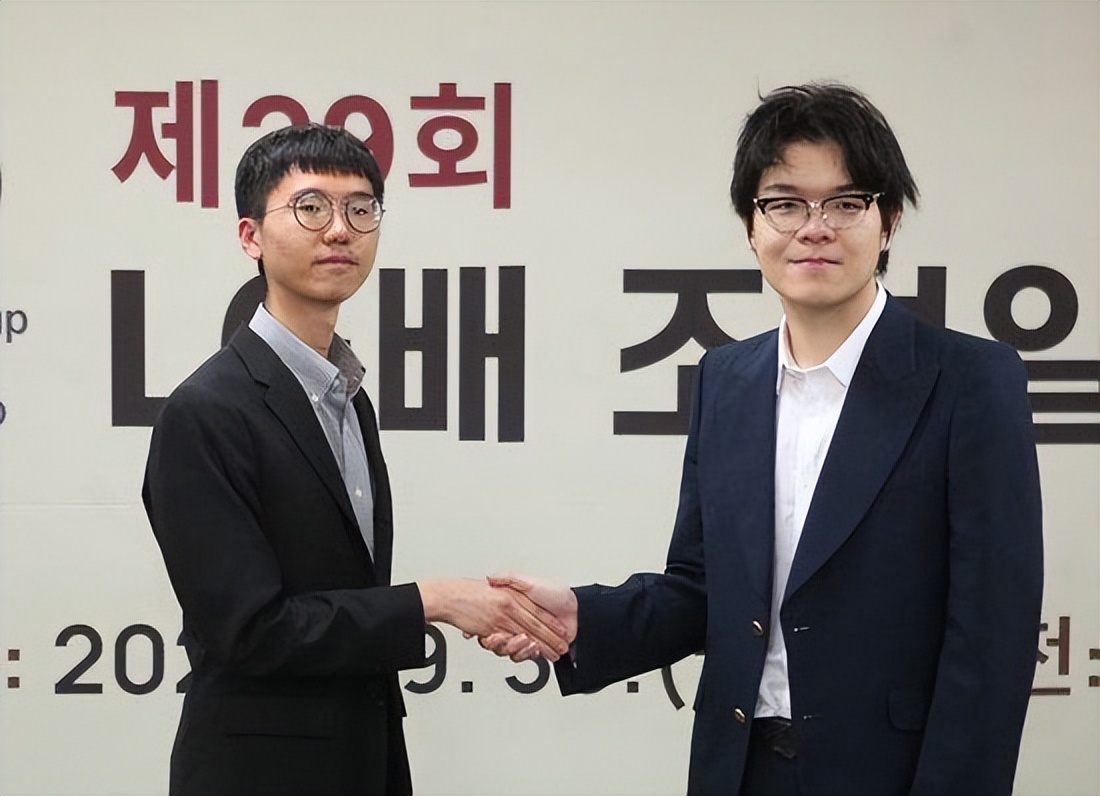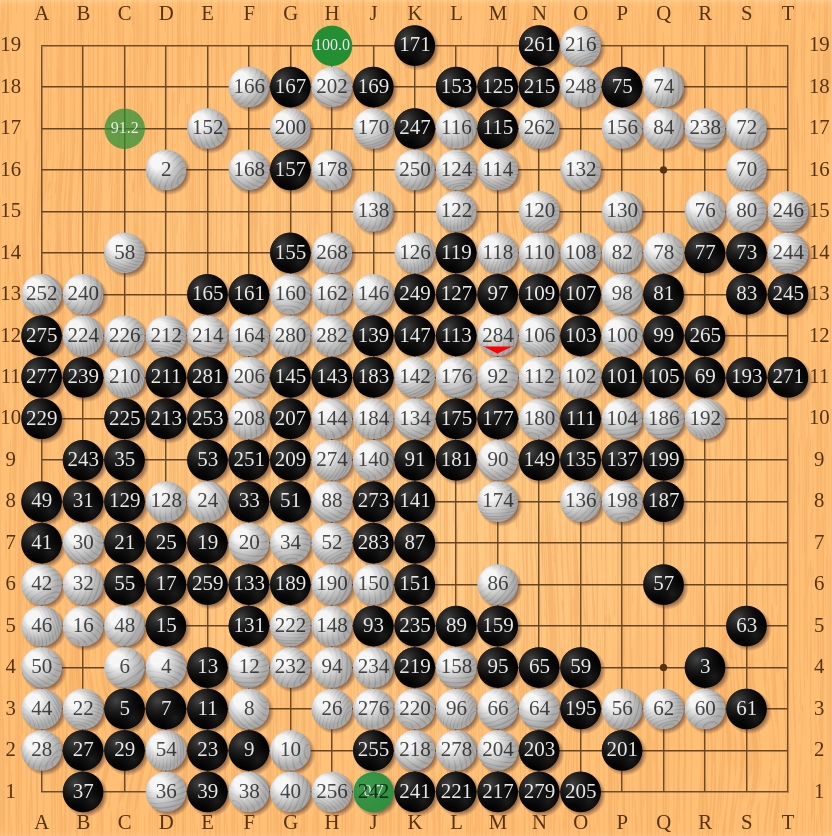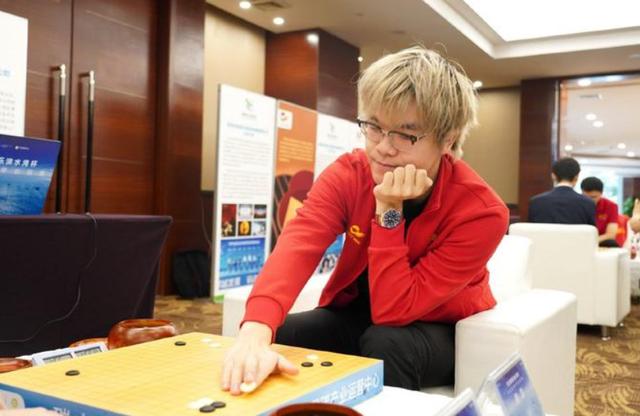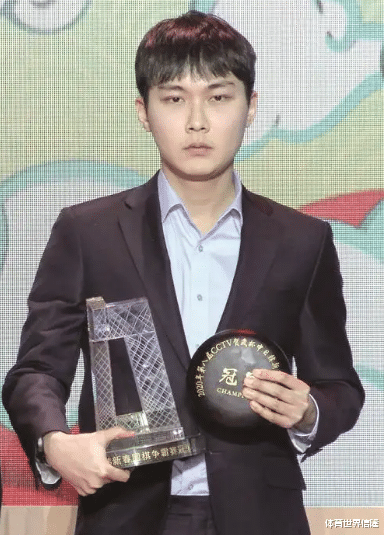The second game of the LG Cup final continued at the Korean Chess Institute, with Ke Jie facing off against Byun Sang-il. Ke Jie was judged to have lost, sparking significant controversy. The incident began when Ke Jie failed to place his piece in the chess cover after lifting it, resulting in a two-point penalty from the referee. The game progressed to the 80th move, where Ke Jie lifted another piece. South Korean player Byun Sang-il signaled to the referee, pointing out that Ke Jie had committed another violation. The South Korean side announced that Ke Jie's second lifting of a piece was in violation of the rules, and due to accumulating two violations, he was directly judged to have lost. This is also the first time in the history of the Go world championship finals that a loss has occurred due to a rule violation. Many netizens expressed their dissatisfaction, and Yu Bin, the head coach of the Chinese national Go team, strongly protested but ultimately agreed. A suspected official account of the Chinese Go Association on a certain platform's live broadcast room stated: "Rules are rules, they weren't set today." After the match, Byun Sang-il's moment of reporting Ke Jie was turned into a meme, which can be considered an unconventional divine move. Byun Sang-il's expression appears somewhat aggrieved, but in reality, he is doing the most ungracious thing. A peak confrontation match did not end because one was superior in skill, but rather due to reporting and unfamiliarity with the rules, which is indeed regrettable. Of course,…
I'm sorry, but I couldn't find the content of the article at the provided URL. Could you please provide the text or content that needs to be translated?
Unexpected Incident at LG Cup Final Second Game: Umpire and Yu Bin Rush onto the Field
On January 22, the second game of the LG Cup final between Ke Jie and Byun Sang-il took place. In the first game, Ke Jie won by 2.5 points with black stones, making it a must-win game for Byun Sang-il. The match started promptly at 9 am. Interestingly, both players continued the strategy from the first game, starting from the two opposite corners on the right top and left bottom. At move 18, Ke Jie captured one of Byun Sang-il's black stones. No one anticipated that this black stone would trigger an incident in the game. Following this, both players engaged in a fierce battle on the lower left side, playing out unusual formations. Ke Jie, lacking research on this layout, spent a long time contemplating and made a move where AI did not recommend. This led to Byun Sang-il also being unsure how to proceed due to Ke Jie's unexpected move. Various commentators felt this was a crucial moment but were unable to make a clear judgment. While everyone was focused on the game, a sudden unexpected event occurred during the live broadcast. At move 44, after Ke Jie placed his stone, there was a commotion in the scene. Upon closer inspection, it was the umpire and the Chinese team's head coach, Yu Bin, rushing into the venue. The umpire exchanged words with Ke Jie, after which both players left their seats. The board was covered with a cloth, and the game was sealed. At this point, there was no official explanation from the scene, leaving chess fans nationwide…
Summary of Commentators' Reviews on LG Cup Final: Ke Jie Basically Without Mistakes, but Won Only After Byeon Sang-il Gave Two Big Gifts
On January 20th, in the first game of the LG Cup final, Ke Jie took the lead by winning by 2.5 points with black pieces against Byeon Sang-il. This game was a full-scale chaotic battle, played with tension and excitement, leaving the spectators calling it thrilling. However, it's not entirely clear how Ke Jie managed to win or where Byeon Sang-il made his mistakes, even with AI at hand. To explore this further, I have compiled comments from commentators at Yike, Yehu, and Xing Xiaomu to try to understand the game better. Yike's commentary mainly represents the AI's perspective, focusing on which moves deviated from AI recommendations and which caused a drop in win rates. There were significant mistakes such as White's move 142, dropping the win rate from 77% to 33%; Black's move 183, dropping the win rate from 91% to 62%; White's move 196, dropping the win rate from 51% to 16%; Black's move 201, dropping the win rate from 89% to 55%; and White's move 218, dropping the win rate from 59% to 0. Yehu's commentary identified three key points: the first being Byeon Sang-il's move 142, a major mistake that AI estimated to decrease the win rate by 40%-60%. Yehu believes that this move trapped all the white pieces, whereas if a different strategy had been chosen, the white pieces could have survived. The second key point is Ke Jie's move 175, where he made an incorrect choice. Yehu suggests that if Ke Jie had chosen to eliminate the upper left corner, the situation would have…
Oh! Ke Jie, Leading in the First Half of the Game, Reversed Again by Shin Jin-woo in the Middle and Late Stages, 10 Consecutive Defeats!
Oh! Ke Jie, Leading in the First Half of the Game, Reversed Again by Shin Jin-woo in the Middle and Late Stages, 10 Consecutive Defeats! On January 13th, Beijing time, at the finals of the Chinese Go League, Chinese Go master Ke Jie, a ninth-dan player, faced off against Shin Jin-woo, another ninth-dan player. Despite having an advantage, Ke Jie was once again reversed by Shin Jin-woo, a script that has been repeated, leaving fans speechless! After this defeat, Ke Jie's record against Shin Jin-woo stands at a dismal ten consecutive losses! During the match, Ke Jie correctly guessed the white stones, which are easier to handle, and played with ease in the first half, making fans think that after long-term hard training, Ke Jie had returned to peak form! However, reality struck again in the actual game! In the middle and late stages of the battle, Ke Jie made a serious misjudgment in the fight for the right side, leading to the situation gradually being caught up by Shin Jin-woo! And under his keen sense of the game, Shin Jin-woo not only leveled the situation but also turned it around, ultimately defeating Ke Jie again in the fight, achieving ten consecutive victories against Ke Jie!
Top 10 Go Players in the Past 30 Years: China and South Korea Evenly Matched, No. 1 Difficult to Decide
Top 10 Go Players in the Past 30 Years: China and South Korea Evenly Matched, No. 1 Difficult to Decide In the past 30 years, the top 10 go players have been evenly matched between China and South Korea, with the number one position being difficult to determine. Park Jung-woo (朴廷桓) With 5 world championships under his belt, Park Jung-woo was once ranked as the world's number one player during his peak. Known for his stable strength and style, he has no obvious weaknesses. He has also won multiple gold medals for South Korea at the Asian Games and the Nongshim Cup team competition, maintaining a long-term dominance in both South Korea and the world rankings during his peak period. Kong Jie (孔杰) At the age of 16, Kong Jie reached the semi-finals of the Chunlan Cup and finished third, gaining fame at a young age. In 2009, he began his legendary run at the Asian Cup Blitz Chess Championship, consecutively defeating three major Korean players: Kang Dong-yun, Lee Chang-ho, and Lee Se-dol to win the title. He then went on to win three more world championship titles. Although his peak may have only lasted a year, achieving three titles in that time is rare. The reason why "Jade-faced Chess King" faded from public view after a year of glory remains a mystery. Ma Xiaochun (马晓春) Ma Xiaochun's playing style is light and flexible, with deep calculations and extremely meticulous thinking, making him the leader of Chinese go in the 1990s. He has an exceptional talent, with the ability to…
